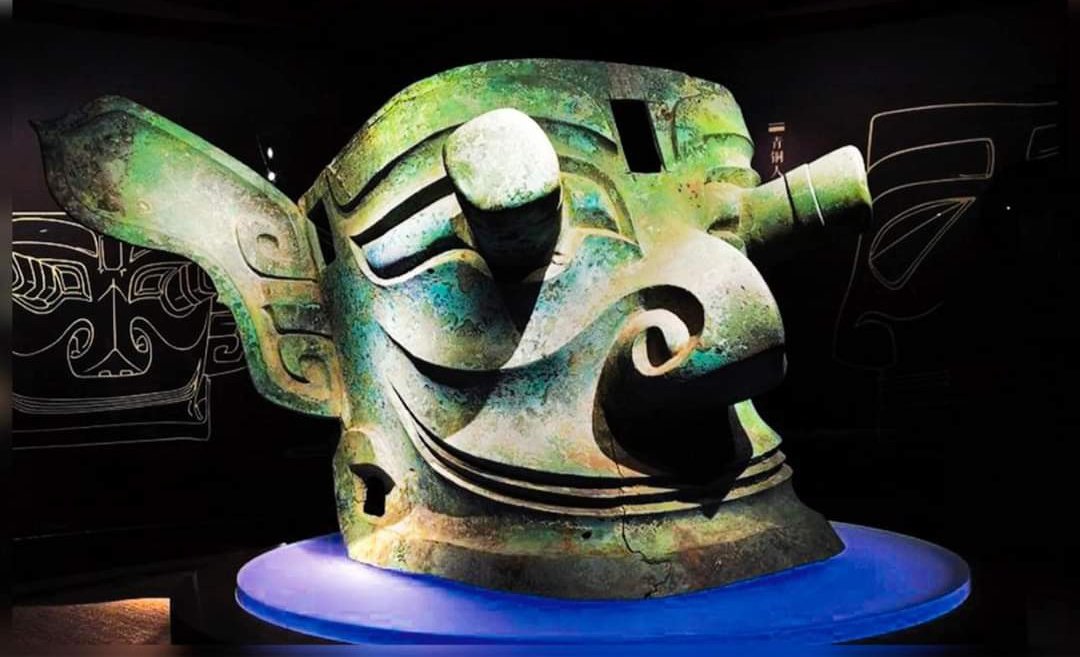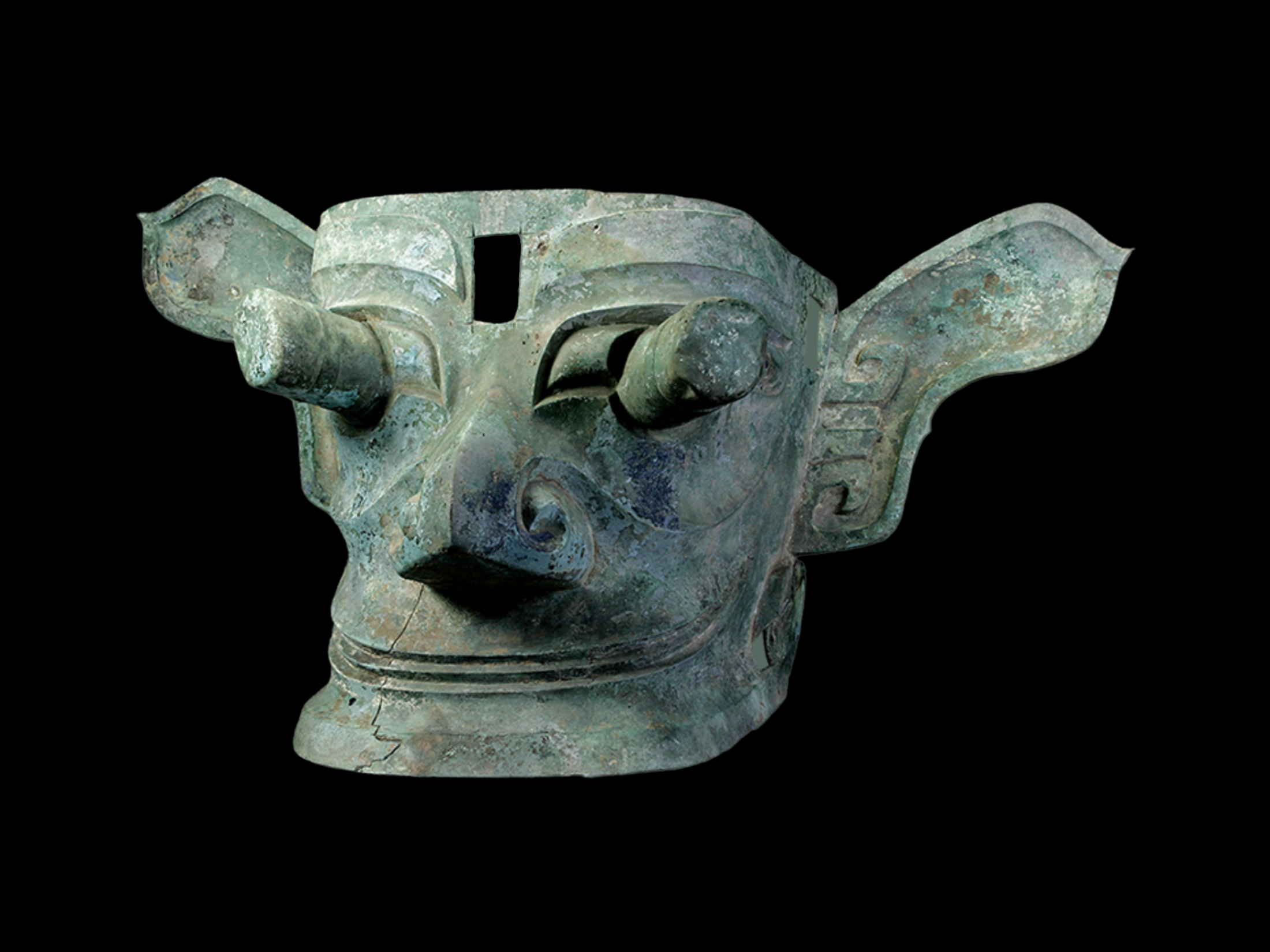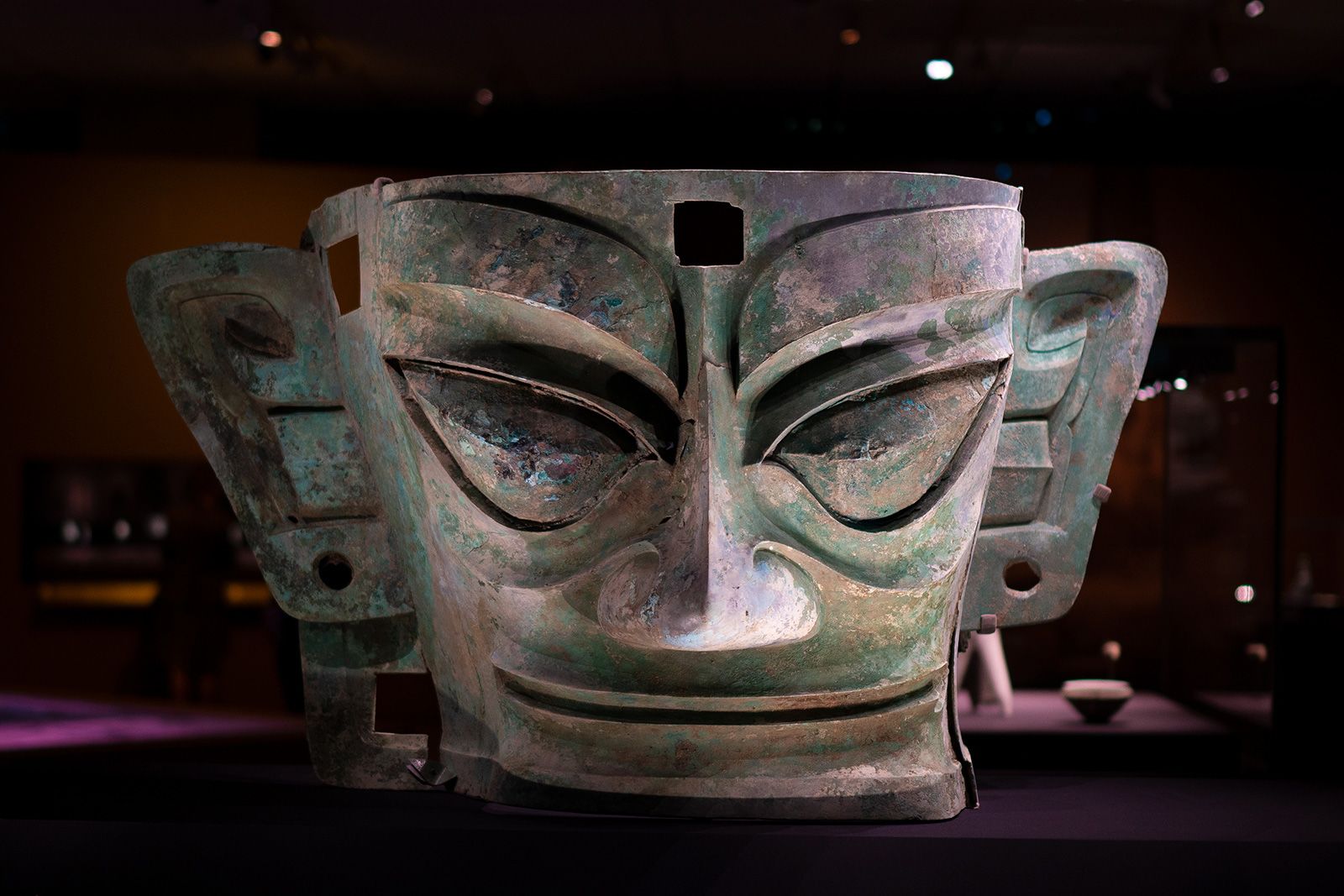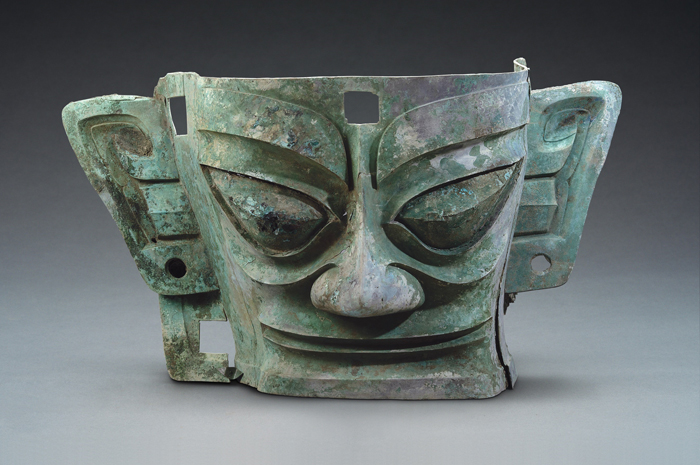Introduction
Nestled in the heart of Sichuan Province, China, lies an archaeological site that has captivated the world’s attention. Sanxingdui, a place once shrouded in obscurity, has emerged as a treasure trove of ancient wonders, revealing the secrets of a civilization that flourished over 3,000 years ago. The artifacts unearthed here are not just remarkable for their beauty and craftsmanship, but also for the profound questions they raise about the origins and fate of the enigmatic Shu people.
Unveiling the Shu Civilization
The story of Sanxingdui began in the 1920s, when a local farmer stumbled upon a series of remarkable bronze artifacts while working in his fields. This chance discovery sparked a wave of archaeological excavations that would uncover a truly astounding array of treasures. Over the following decades, the site revealed towering bronze statues, striking masks with exaggerated facial features, intricate jade pieces, and gleaming gold items – all of which were unlike anything found in other ancient Chinese cultures.

The artifacts discovered at Sanxingdui date back to around 1,000 BCE, a time when the Shang and Zhou dynasties were dominant in China. Yet, the objects found here bear little resemblance to the art and artifacts of these more well-known civilizations. Instead, they point to the existence of a distinct and highly advanced culture – the Shu people – who seemed to have developed in relative isolation.
Unique and Enigmatic Artifacts
One of the most striking features of the Sanxingdui artifacts is their sheer uniqueness. The bronze statues, for instance, are unlike any other ancient Chinese sculptures, with their elongated, almost alien-like features and distinctive poses. Some stand over 5 meters tall, their imposing presence commanding attention and sparking wonder.
The masks found at the site are equally captivating. These intricate, exaggerated facial features appear to have been designed for ritual or ceremonial purposes, but their exact function remains a mystery. Some scholars have speculated that they may have been used in religious ceremonies or as representations of important deities or ancestors.

Alongside the impressive bronze works, the site has also yielded an array of stunning jade pieces, including elaborate carvings and ornaments. These delicate, finely crafted objects demonstrate the Shu people’s exceptional skill and artistry, as well as their reverence for this precious material.
Perhaps most intriguing of all are the gleaming gold artifacts, which include intricate masks, headdresses, and other ornaments. The sheer quantity and quality of these gold items suggest that the Shu people had access to significant wealth and resources, further adding to the enigma surrounding their civilization.
Theories and Speculation
The uniqueness of the Sanxingdui artifacts has sparked intense curiosity and speculation about the origins and influences of the Shu people. Some researchers have proposed that the Shu civilization may have had connections to ancient Southeast Asian cultures, while others have suggested that it may have been influenced by more distant civilizations, such as those in the Middle East or Central Asia.

One particularly compelling theory is that the Shu people may have been influenced by the ancient Mesopotamian cultures, as evidenced by the similarities between some of the Sanxingdui artifacts and objects found in the Near East. This hypothesis has fueled further research and debate, as scholars seek to unravel the complex web of cultural influences that shaped the Shu civilization.
The Sudden Disappearance of the Shu
Perhaps the greatest mystery surrounding Sanxingdui is the sudden and unexplained disappearance of the Shu civilization. After reaching the height of their cultural and technological development, the Shu people vanished from the historical record, leaving behind no clear explanation for their abrupt demise.

Some researchers have speculated that the Shu may have been wiped out by a natural disaster, such as a volcanic eruption or a catastrophic flood. Others have suggested that they may have been conquered by a rival civilization or succumbed to internal conflicts. However, the lack of conclusive evidence has left the true fate of the Shu people shrouded in mystery.
Ongoing Excavations and Discoveries
Despite the many unanswered questions surrounding Sanxingdui, the site continues to yield new and exciting discoveries. Ongoing excavations have uncovered additional artifacts, including more bronze statues, masks, and jade objects, further expanding our understanding of this enigmatic civilization.

As the exploration of Sanxingdui continues, researchers remain hopeful that future discoveries will shed more light on the origins, influences, and ultimate fate of the Shu people. The site has already challenged our preconceptions about the development of ancient Chinese culture, and it is likely that there are many more secrets waiting to be uncovered.
Conclusion
Sanxingdui stands as a testament to the incredible diversity and complexity of ancient civilizations. The artifacts found at this site are not only visually stunning, but they also represent a tantalizing glimpse into a world that has long been lost to history. The Shu people, with their unique artistic sensibilities and advanced technological capabilities, have captured the imagination of scholars and the public alike.
As we continue to unravel the mysteries of Sanxingdui, we are reminded of the richness and diversity of human culture throughout history. The story of this ancient civilization serves as a powerful reminder that there is still so much to discover about our shared past, and that the most profound insights can often be found in the most unexpected places.
